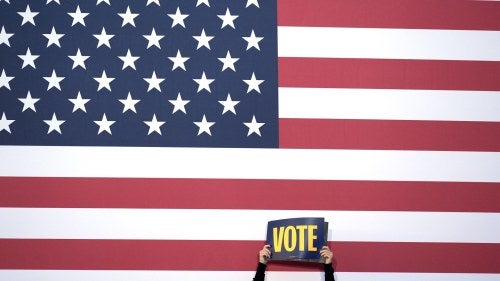Foreign Policy Matters: America’s Next Chapter

The 2024 Election and America’s Foreign Policy Future
The 2024 presidential race was the third consecutive election in the past decade that pit an internationalist against a nationalist view of US global engagement. While Donald Trump ultimately claimed victory, the 2024 Chicago Council Survey finds everyday Americans largely fall somewhere in the middle of these competing ideologies.
“There is often less division than imagined when it comes to long-standing pillars of US foreign policy,” Council experts write, pointing to continued public support for alliances, international trade, and maintaining US military bases abroad.
The Data Dimension
Over the past decade, public opinion on the US role in the world has moved counter to the view of the sitting president. Despite Trump’s nationalist foreign policy stance, during his first term, public support for an active US role in the world reached some of the highest levels ever recorded in Council polling. Under the more internationalist Biden administration, American attitudes shifted in the opposite direction.
What We're Watching
- Expert takes on Trump 2.0: A Council-University of Texas at Austin survey offers a look at what foreign policy leaders think a second Trump administration could mean for NATO, Taiwan, and more.
- Turkey’s East-West balance: Recent polling shows Turkish views of the European Union and NATO have become more favorable, while their attitudes toward Russia and China have grown more negative.
- North Korea’s Russia gambit: The involvement of North Korean troops in the Russia-Ukraine war makes it more likely the conflict will go global, Nonresident Fellow Paul Poast writes.
- Kenya’s economic ties: As the United States and China compete for influence in Africa, survey data show a majority of Kenyans express somewhat or very positive opinions of how each impacts their country.
Ask an Expert
What impact could Trump’s return to the White House have on Korea?

“The most extreme nonwar result would likely be a South Korean nuclear weapons program coming online within the Trump presidency, and the ripple effects of that program washing up on the shores of Japan. The development of such a program would be extremely risky in the time between the program being discovered—and it will be discovered—and those weapons becoming operable."
—Marshall M. Bouton Fellow for Asia Studies Karl Friedhoff in Newsweek

